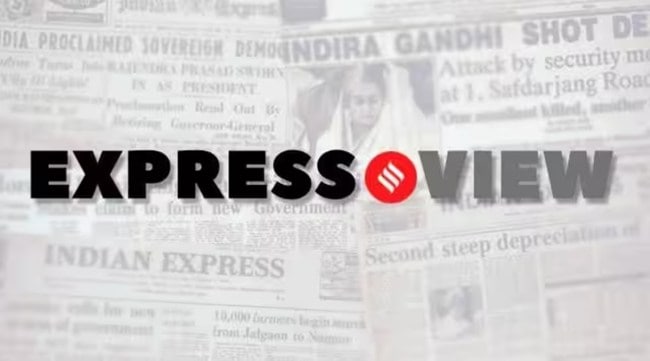Opinion Express View on NCERT revisions: Narrowing the view
Textbook revisions speak of a reluctance to engage with social complexities, pose question mark against NCERT’s mandate to enable critical thinking
 The NCERT’s latest revisions do not address such knowledge-related imperatives either.
The NCERT’s latest revisions do not address such knowledge-related imperatives either. An investigation by this newspaper has revealed significant changes in NCERT’s history, sociology and political science textbooks of classes VI to XII. Revision of learning material should be par for the course in a robust education system. But school curricula in India — especially social science textbooks — have not always kept pace with the latest research. History textbooks, for instance, haven’t done adequate justice to the archaeological findings that have changed understandings of the Indus Valley Civilisation (IVC).
Recent historiography on understudied areas, such as the country’s Northeast, is yet to find a way into the school curriculum. Political science textbooks have very little on the new forms of mobilisation enabled by social media. It’s also time that the student is apprised of climate change politics.
The NCERT’s latest revisions do not address such knowledge-related imperatives either. Instead, they appear burdened by the ruling dispensation’s anxiety to paper over fraught political moments in the country’s recent history — the demolition of the Babri Masjid, for instance. They underplay social faultlines such as those related to caste. Even the changes that take note of new research on the IVC, seem of a piece with the deeply contested and politically loaded narrative that harps on continuity between the Harappan and Rig Vedic epochs.
Last year, another investigation by this newspaper on NCERT textbooks had shone a light on the deletion of key passages on Mahatma Gandhi’s assassination, the Emergency, Gujarat 2002 and protest movements. Of course, social sciences have always been an arena of ideological and political contestation and textbook committees have a long history of being fettered by government interventions.
However, the recent revisions belie the hopes raised by the NEP — they go against the policy’s ideologically agnostic approach to education reform. Some of the changes described as “minor editing” — the deletion of the reference on the poverty and powerlessness of Scheduled Caste and Scheduled Tribe communities in the Class XII Sociology textbook, for instance — seem to tie in with a political agenda of playing up the notion of a cohesive Hindu society. Similarly, the removal of a sentence linking big dam projects to the destitution of tribal groups — also in the Class XII Sociology textbook — betrays an unease with argumentative engagements with developmental processes.
Young minds today are exposed to a glut of information on culture, history and politics from a variety of sources, including social media. Veracity is often a casualty. Classrooms must, therefore, provide a grounding in objectivity while alerting students to social complexities, with all their diversities, conflicts and inequities. The country’s foremost textbook framing body should be an enabler of this process, not a hurdle in it.





